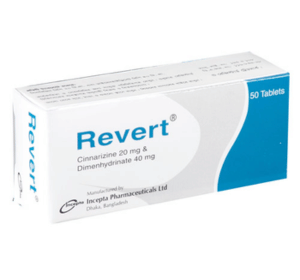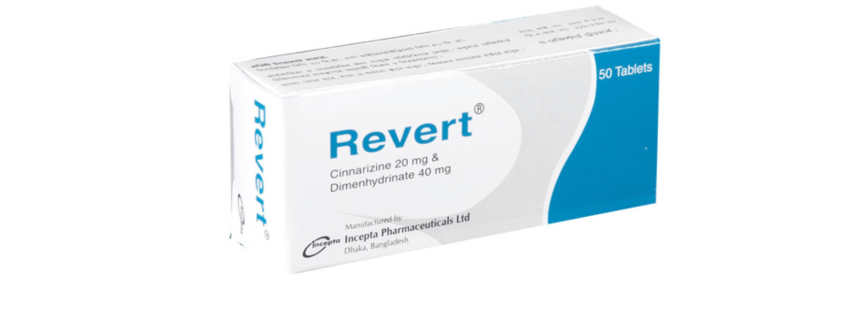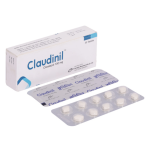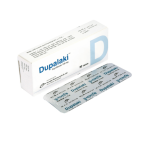Revert(Cinnarizine-Dimenhydrinate )

Therapeutic Group: Drugs of Nervous System
Presentation
Revert tablet: Each tablet contains 20 mg cinnarizine and 40 mg dimenhydrinate.
Description
Revert consists of two compounds: cinnarizine and dimenhydrinate. Dimenhydrinate, the chlorotheophylline salt of diphenhydramine, acts as antihistamine with anticholinergic properties. The substance exhibits anti-emetic and antivertiginous effects through influencing the chemoreceptor trigger zone in the region of the 4th ventricle. Cinnarizine acts mainly as a vestibular sedative through inhibition of the calcium influx into the vestibular sensory cells. Cinnarizine thus acts predominantly on the peripheral vestibular system. The combination product is more effective than the individual compounds.
Indications
Revert is indicated for the treatment of vertigo symptoms of various origins.
Dosage & Administration
Adults: 1 tablet three times daily, to be taken unchewed with some liquid after meals.
Children and adolescents under the age of 18 years: Revert is not recommended in children and adolescents under the age of 18 years because there are no data available on the use of Revert in this age group.
Elderly: Dosage as for adults.
In general, the duration of treatment should not exceed four weeks. The physician shall decide whether longer treatment is required.
Side Effects
The most frequently occurring side-effects are somnolence and dry mouth. These reactions are usually mild and disappear within a few days even if treatment is continued. In addition the following adverse reactions are associated with dimenhydrinate and cinnarizine:
Dimenhydrinate: paradoxical excitability (especially in children), worsening of an existing angleclosure glaucoma and reversible agranulocytosis.
Cinnarizine: constipation, weight gain, tightness of the chest, cholestatic jaundice, extrapyramidal symptoms, lupus-like skin reactions, lichen planus.
Precautions
Revert does not reduce blood pressure significantly, however, it should be used with caution in hypotensive patients. Revert should be taken after meals to minimize any gastric irritation.
Use in Pregnancy & Lactation
Pregnancy: The safety of Revert in human pregnancy has not been established.
Lactation: Dimenhydrinate and cinnarizine are excreted in human breast milk. Revert should not be taken by women who are breast feeding.
Drug Interaction
The anticholinergic and sedative effects of Revert may be potentiated by monoamine oxidase inhibitors. In common with other antihistamines, Revert may potentiate the sedative effects of CNS depressants including alcohol, barbiturates, narcotic analgesics and tranquillisers. Revert may also enhance the effects of antihypertensives, ephedrine and anticholinergics such as atropine and tricyclic antidepressants.
Over Dose
Symptoms of overdosage with Revert include drowsiness, dizziness and ataxia with anticholinergic effects such as dry mouth, flushing of the face, dilated pupils, tachycardia, pyrexia, headache and urinary retention. General supportive measures should be used to treat respiratory insufficiency or circulatory failure. Gastric lavage with isotonic sodium chloride solution is recommended. Cramp-like symptoms may be controlled by careful application of a short-acting barbiturate. In cases of marked central-anticholinergic effects, physostigmine (after physostigmine test) should be administered slowly intravenously (or, if necessary, intramuscularly): 0.03 mg/kg body weight (adults max. 2 mg, children max. 0.5 mg). Sufficient elimination can be achieved by means of haemoperfusion using activated charcoal.
Storage
Do not store above 30 C. Keep away from light and out of the reach of children.
Commercial Pack
Revert tablet: Each box contains 10 blister strips of 10 tablets.



